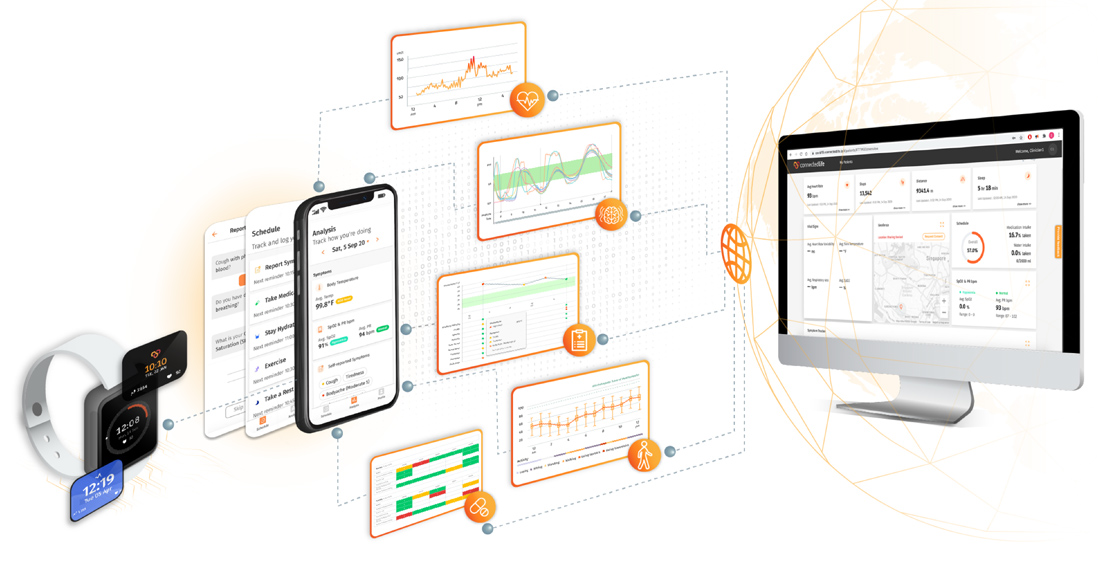Indian hospital uses Fitbits to monitor patients
- March 28, 2022
- Steve Rogerson

Manipal Hospitals, the second-largest healthcare services provider in India, is to use Fitbit’s wearable technology with Singapore-based ConnectedLife’s virtual platform to monitor patient progress.
ConnectedLife’s platform was built with Google Cloud to use and empower continuity of care after high-risk surgery. Through this virtual platform, the clinical teams at Manipal Hospitals will gain a holistic view of the patient post-discharge, tailor their intervention to the patient’s needs, and monitor them in their journey towards a healthy post-surgery recovery.
This digital initiative aims to use wearable technology to stay connected with patients post surgeries such as total knee replacement, angioplasty, cardiac bypass surgery and other high-risk surgeries.
The technology can remotely capture heart rate, oxygen saturation level and activity metrics such as sleep quality, steps taken and pain score, both pre-and and post-operatively. It can optimise patient care via triggering reminders to take medications or participate in physiotherapy and triggering warnings if there are significant deviations outside normal physiological parameters.
Early data indicate patients on the programme have seen improved adherence to medication and exercise schedule with associated improvements in physical activity. Within this programme, patients in post-operative care can get a better view of their activity, sleep and other health metrics that can help empower them in managing their day-to-day wellbeing.
“This is the beginning of a new and exciting chapter in the history of Manipal Hospitals and in the Indian healthcare ecosystem,” said Sudarshan Ballal, chairman of Manipal Hospitals. “Today, we have an excellent opportunity to develop a cohesive programme for the continuity of care after hospitalisation. Through this partnership, we are expecting post-surgery care to become seamless, as wearable technology will help us monitor certain critical parameters of patients who have undergone total knee replacement surgery, angioplasty, cardiac bypass surgery and other high-risk surgeries.”
Dilip Jose, CEO of Manipal Hospitals, added: “In the long run, it will help facilitate Manipal Hospitals to determine if the post-operative data collected from the ConnectedLife with Fitbit dashboard match with functional outcomes and improved patient satisfaction post-surgery. These data will allow us to understand and develop new methods in cost-effectiveness, compliance, comfort and ease of use, all while giving us accurate data on the vitals.”
The intuitive, user-centric platform should help every person, from at-risk patients to chronic sufferers.
“We will be able to better understand their condition and then collaborate with care teams to achieve better health outcomes,” said Jose. “Through its patient-centric platform, we will be able to replace lengthy manual processes with 24/7 insight-based care and monitoring, and thus enabling recovery outside of hospitals.”
Alok Shankar, country manager for Fitbit in India, added: “We continue to work with ConnectedLife to facilitate engagement with strategic partners like Manipal Hospitals to develop and implement solutions that play a key role in building the digital health ecosystem in India. This programme gives people a better view of their health metrics, which can help empower them to better manage their recovery.”
And Daryl Arnold, CEO of ConnectedLife, said: “We are honoured to partner with Manipal Hospitals and Fitbit in bringing about a digital transformation within the Indian health ecosystem to continuity of care post-high-risk surgeries. For ConnectedLife, this is an incredible opportunity to deliver at scale and further advance the application of easy-to-use smartphone and wearable technology, and novel data analytics and AI, and population health management tools. With our trusted, secure and scalable enterprise infrastructure, ConnectedLife will deploy new features and capabilities based on patient and clinician feedback every two to four weeks, and maintain the strictest accountability for data acquisition, privacy and protection.”




